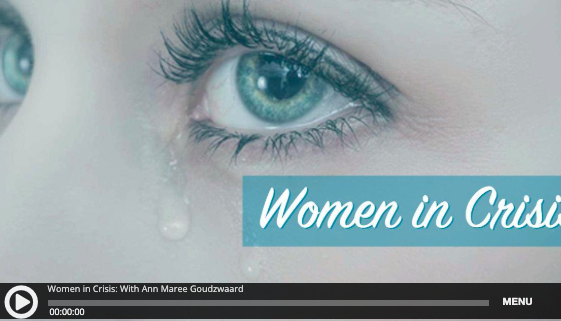E-62 Women in Crisis, with Ann Maree Goudzwaard
The statistics of women who have suffered at the hands of another are staggering. What does the Bible say about abuse? Ann Maree Goudzwaard joins Karen Hodge to share her experience as a counselor as she helps [...]








